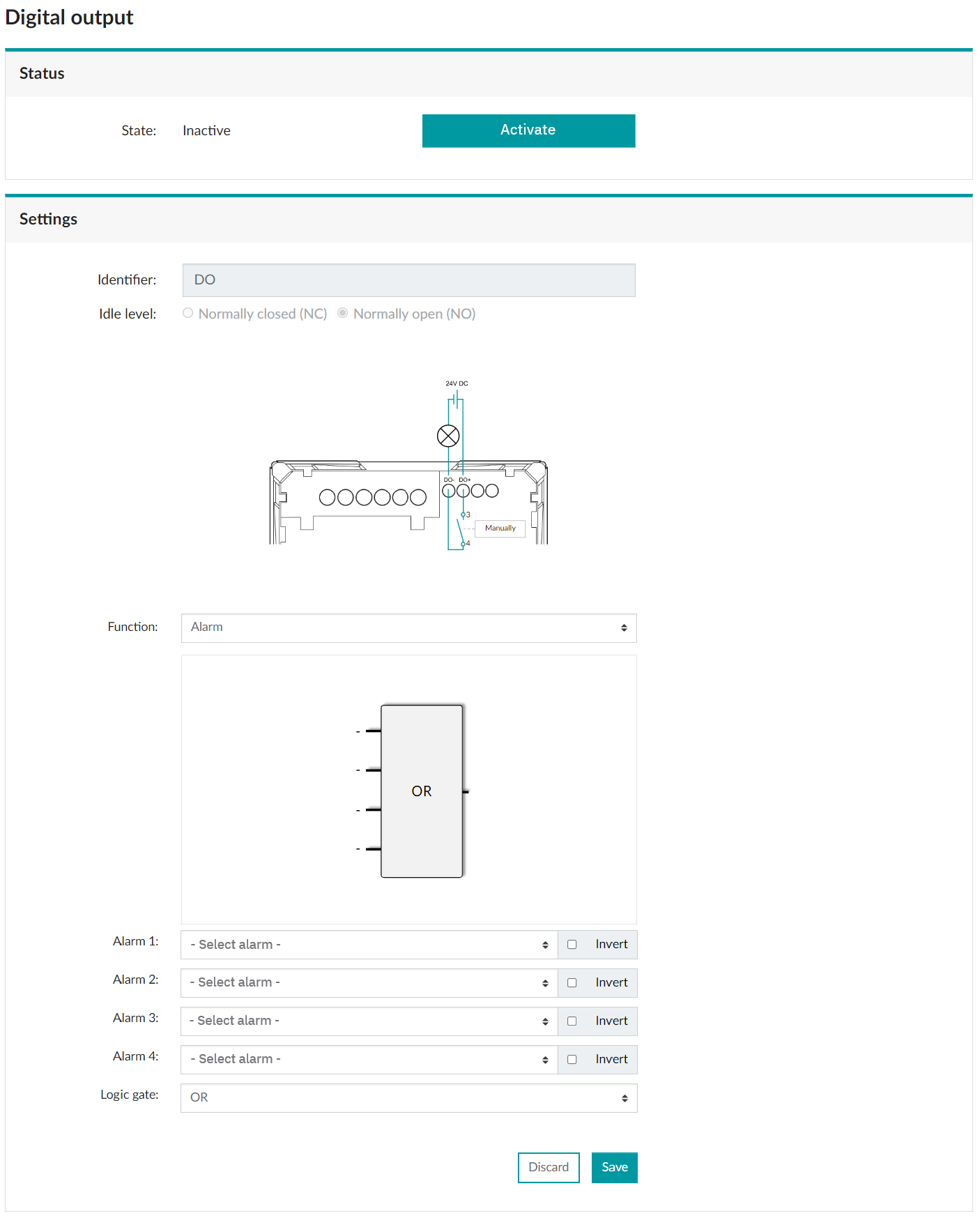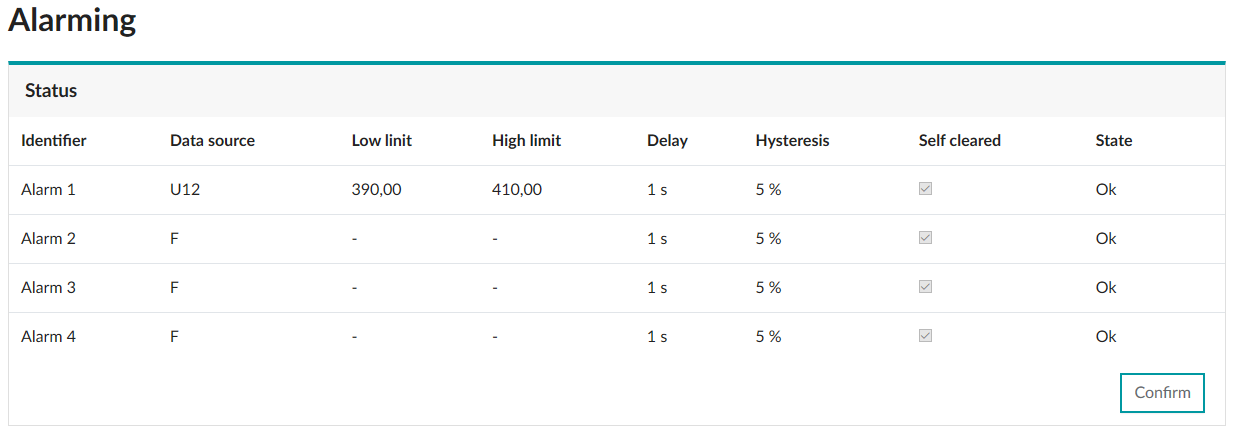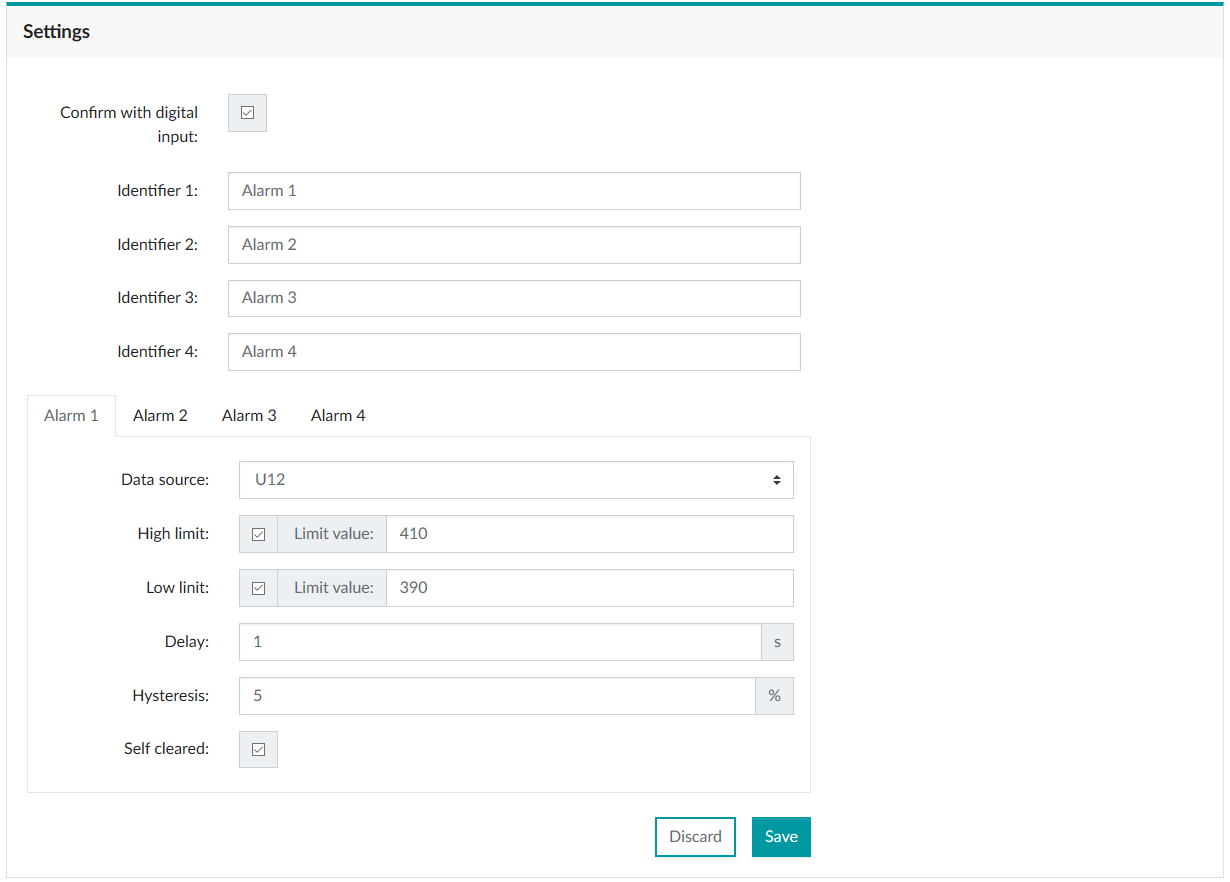Alarm
What you will find in this section:
The digital output complies with IEC 61131-2 Type 3. It can be configured via the web server or the Modbus communication interface.
Alarm
The “Alarm” function can be used to react to changes to the measurement values.
You can define upper and lower thresholds for the domain.
If the measured values are outside of these thresholds, the alarm function is activated and sent via the digital output.
|
Navigation on the web server |
Menu: “Settings, Digital output”, “Alarm” function |

|
Status |
The “Status” area shows the current status of the digital output. |
|
Identifier |
The identifier can be used to assign a user-specific designation to the digital output. |
|
Idle level |
There are two possible statuses for the idle level.
|
|
Function |
Select the “Alarm” function. |
|
Navigation on the web server |
“Settings, Alarm” |

|
Status |
The “Status” area shows the current status of the alarms. |
|
Settings |
Set the alarm according to your requirements. |

|
Confirm with digital input |
You can use the checkbox to define that manual acknowledgment of an alarm is required. The acknowledgment is performed via the digital input, which has to be configured for this purpose. |
|
Identifier |
The identifier can be used to assign a user-specific designation to the alarms. |
|
Alarm 1…4 |
You can use the four tabs to define the alarm configuration for each alarm. |
|
Data source |
Select the measurement value to be monitored. |
|
High limit and low limit |
Use the checkbox to select the monitoring function. Depending on which function you selected, enter the value to be monitored. |
|
Delay |
Enter the tripping delay for the alarm in seconds. |
|
Hysteresis |
For the switching threshold, a hysteresis in percent is required. Enter it here. |
|
Self-cleared |
With this checkbox, you can define that the alarm self-acknowledges after the normal status has been restored. This way, no manual acknowledgment via the digital input is required. The integrated logic gate enables multiple use of the digital output for the alarm function. |
Related topics